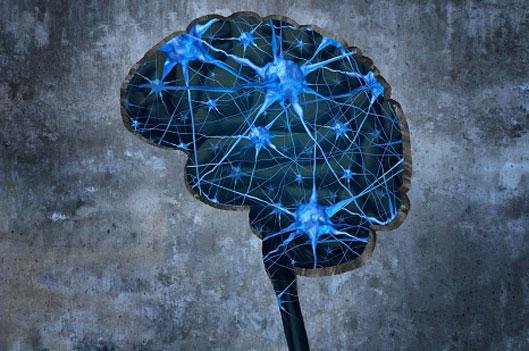Rush study compares levels of key protein with memory and thinking abilities
Older people with higher amounts of a key protein in their brains had slower decline in their memory and thinking abilities than people with lower amounts of the protein, according to a study led by neurological researchers from the Rush Alzheimer’s Disease Center at Rush University Medical Center.
The results of the study were published in the January 27, 2016, online issue of Neurology, the medical journal of the American Academy of Neurology.
The researchers compared the degree of cognitive decline in study participants with the levels of the protein created by expression of the gene brain-derived neurotrophic factor, or BDNF for short. The protein aids the survival of neurons (nerve cells) in the brain and helps stimulate development of new ones.
“This relationship was strongest among the people with the most signs of Alzheimer’s disease pathology in their brains,” said Dr. Aron S. Buchman, principal investigator of the study and professor of neurological sciences at Rush. “It suggests that a higher level of BDNF protein may provide a buffer, or reserve, for the brain and protect individuals against the effects of the plaques and tangles that accumulate in the brain as a part of Alzheimer’s disease.”
Cognitive decline slowed by half for some
For the study, 535 people with an average age of 81 were followed until death, a period that averaged six years. During this time, the study participants took yearly tests of their thinking and memory skills.
After their death, a neurologist reviewed their records and determined whether they had dementia; some memory and thinking problems, called mild cognitive impairment; or no thinking and memory problems. Autopsies were conducted on their brains after death, and the amount of BDNF protein in the brain then was measured. The participants were part of the Rush Memory and Aging Project and the Religious Orders Study.
The rate of cognitive decline was about 50 percent slower for those with the highest 10 percent of BDNF protein found compared to those with the lowest 10 percent. In addition, the effect of plaques and tangles in the brain on cognitive decline was reduced on people with high levels of BDNF.
Thus, for two individuals with high levels of AD pathology in their brains, , the rate of cognitive decline was about 40 percent slower in people with the highest amount of BDNF protein in their brains compared to those with the lowest amount.
On average, thinking and memory skills declined by about 0.10 units per year on the tests. Higher levels of BDNF protein reduced the effect of plaques and tangles in the brain on cognitive decline by 0.02 units per year.
The researchers found that the plaques and tangles in the brain accounted for 27 percent of the variation in cognitive decline, demographics accounted for 3 percent and BDNF protein accounted for 2 percent.
While past efforts have focused on developing treatments which prevent AD pathology or increase its removal, the current study suggest a new approach. Therapies targeting BDNF expression might one day provide a second alternative which focus on protective therapies which prevent the effects of AD pathology.
We need to examine this relationship
Michal Schnaider Beeri, PhD, of the Icahn School of Medicine at Mount Sinai in New York, noted in an accompanying editorial that exercise has been shown to increase levels of BDNF protein in the blood, but that the relationship between BDNF protein levels in the blood and in the brain is not clear.
“More research is needed to confirm these findings, determine how this relationship between protein produced by BDNF gene expression and cognitive decline works and see if any strategies can be used to increase BDNF in the brain to protect or slow the rate of cognitive decline,” Buchman said.
Buchman noted that the study does not prove that BDNF protein is the cause of a slower rate of cognitive decline. Further work is needed to determine if activities which increase brain BDNF gene expression levels protect or slow the rate of cognitive decline in old age.
The study was supported by the National Institutes of Health, Illinois Department of Public Health and the Robert C. Borwell Endowment Fund.
###
Rush is a not-for-profit healthcare, education and research enterprise located in Chicago comprising Rush University Medical Center, Rush University, Rush Oak Park Hospital and Rush Health.

